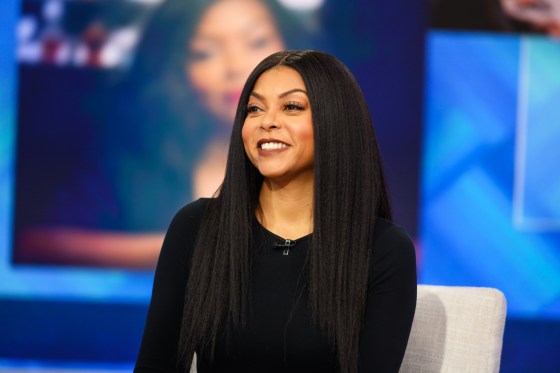In the latest episode of Facebook Watch’s “Peace of Mind With Taraji,” actor Taraji P. Henson and her co-host, Tracie Jade, discussed the challenges facing young gay Black men in the church.
During the show, two men opened up about experiencing homophobia from religious family members and their relationship to their faith. Kyree Robinson told the hosts his family disowned him after discovering he was gay.
"After I finally got caught with another man, they were like, 'Change your last name,'" Robinson said. "'You no longer a part of this family. Don’t say nothing to me. Don’t talk to no one in the family. That’s it.'"
Robinson added that he was shocked and confused when his family completely cut ties with him. Leading up to this point, Robinson said he struggled to reconcile his sexuality and religious beliefs.
“I was, like, the spoiled brat of my family. I was, like, groomed to be, like, the perfect one,” Robinson said. “So going from being a spoiled brat to figuring out what you’re gonna eat the next day, cut completely off, change your last name, everything.”
Robinson tearfully recalled that his family members told him God “don’t love you no more.” Robinson said he had suicidal thoughts and began using drugs to cope.
Lacking the family support, Robinson said, “really tore me apart. And I’m still, to this day, not the same person.”
Malik Pridgeon shared that he was also under pressure to hide his sexuality because of his family’s religious beliefs.
"One of the questions my mom asked me when she found out was, 'How are you going to be a pastor and you’re gay?'" Pridgeon said. "You know, and so I knew, right, that I had to suppress my identity because when you’re outside of God’s wheel, there’s like, there’s not a whole bunch of protection. ... And that’s what scares me more than anything."
Robinson and Pridgeon’s stories are all too familiar among Black LGBTQ youth. Due to anti-LGBTQ sentiment, only 3 percent of Black queer youth report that they are out to all members of their religious community, according to a 2019 report from the advocacy group the Human Rights Campaign. A report released last year by UCLA School of Law’s Williams Institute revealed that most LGBTQ adults who are religious are older, Black or live in the South.
During the episode, psychologist Shelly Collins advised LGBTQ people of color to broaden their support systems. This means not only seeking therapy but connecting with LGBTQ-friendly ministries.
“There are churches that are inclusive,” Collins said. “You want to initially start with, who is my support? You don’t need many. You just need maybe one. So, figure out who is the person or persons that I can start with. And then work yourself up from there.”
As Robinson still heals from his complicated relationship with the church, he said he wants LGBTQ young people to know there is hope — even if that means temporarily putting the brakes on coming out about who they love.
“Be patient with yourself and just be good to you until you get the chance and the resources to really do what you want to do,” he said.

